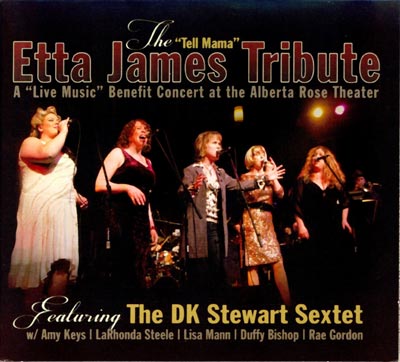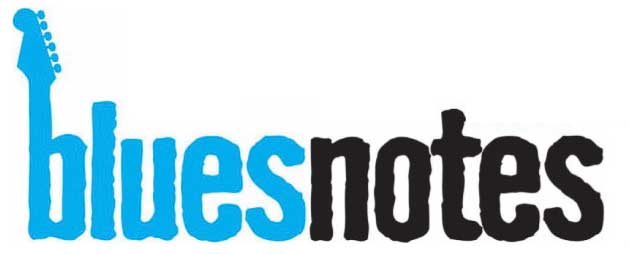Unsung Blues Hero Ray Varner Contributes His Talents by Promoting the Blues
By Laurie Morrisey
A while back, I approached Safeway Waterfront Blues Festival Talent Coordinator, Peter Dammann, and asked him about some of the unsung heroes of the festival. The first name that came to his mind was Ray Varner. Ray worked at the Fed-Ex Stage for about 10 years, although he’s retired now.
“He was the perfect guy for that gig. I relied on his judgment a lot; he was one of the people, especially in the early years, that encouraged me to go after some of the more obscure acts. Ray was a central figure in the early formation of this whole scene. In the early days of Cray, Curtis and deLay, he turned them on to a lot of gigs. He is a really genuine guy,” said Peter Dammann.
The admiration Peter has for Ray shows in his words. “He was the center of the blues universe for a long time. With his low profile, people had no idea. He knows as much about this stuff as just about anybody and has been on the inside for a long time.”
Ray’s roots in Oregon are deep, but that’s not where he started. He first found the blues while living in Dover, Ohio. At night, Ray was able to pick up stations from Boston, Chicago, Detroit, Nashville and Memphis. As a young boy, he started buying ‘45s. “In 1963, I started collecting blues specifically. Most of that vinyl is all worn out now.”
He moved to Chicago and then to Eugene, with some travel in between. When leaving Chicago, he thought he’d be saying good-bye to the blues music he loved so much, but he found he was sorely mistaken.
When asked about Robert Cray and Curtis Salgado and the Animal House days in the ’70s, Ray says, “Those were some turbulent days.”
“I did own, briefly, a small percentage of the Robert Cray Band. My first concert production was Johnny Shines and Robert Lockwood in 1978. It was designed to push start the Oregon Blues Society. The OBS lasted for six years, and we promoted some monumental concerts,” he said. He was also a founding member of the Washington Blues Society.
Curtis Salgado had many positive remarks about Ray. “As a musician, it is like being in a club or fraternity. You don’t find very many non-musicians who actually ‘get it.’ There are those people who act like they know and those that truly know; most don’t realize the depth. Ray does; he can ‘hang.’ He’s a club member in the musician’s circle; like a brilliant musician without any instrument. He has always impressed me with his understanding and knowledge of history and music. Ray’s well runs deep. He could tell you about any kind of ethnic music, from Blues to soul, bluegrass Tex-Mex, East LA, jazz. Ray is an extremely soulful, hip, compassionate guy with integrity plus. He is an educator and probably one of the most knowledgeable guys on Americana music on the face of the planet. Ray is a musicologist – he could articulate to a ‘T’ exactly what you saw and what you felt in music.”
Over the years, Ray has collected and wrote about the blues—working for Living Blues magazine, Jefferson blues magazine, and elsewhere. “I did blues radio for KLCC in Eugene, and later for two public stations in Seattle. I also did Zydeco specials for the NPR affiliate in Columbus, OH,” he said.
His current “day job” is as a partner in Criminal Records NW with Don Campbell and Paul Jones. “We’re releasing vintage NW recordings from the eighties, and before, which haven’t been available for decades.”
Ray’s “partner in crime,” Don Campbell had some very nice things to say about him. “I met Ray in Eugene back in the late 70s while playing with a blues band called the Bluetones. He introduced me to DK Stewart. I guess DK liked the way I played—I’ve been playing with him, one way or another, ever since. I got to hang around with all the blues dudes there at the time. It was quite a scene down there then. We met regularly, threw shows, and needle-dropped a ton of great old blues records. We lived for it. We swapped vinyl, listened, studied, practiced, performed. It was a great period of my life. But Ray was always at the center of it all. I spent many nights at his house. This was during the whole Animal House and Blues Brothers-emergence era. There are tons of great stories that are probably better kept secret.”
And the kind words, just keep on coming…“Ray is a walking encyclopedia of Blues and rural music. I’ve never stumped him. He always has a ton of insight into artists, record labels, producers, and promoters. His depth is scary—I mean really scary. Ray is amazingly well connected in the greater blues scene and knows everybody,” Don said. “He is as much a part of the NW Blues scene as anybody I know, but is probably the most unsung, underrated, under-appreciated figure around these parts.”
Another local bluesman, Bill Rhoades, has also known Ray for many a year—going back to Eugene in the 70s. “Ray and I have been friends since we met over a bin of blues records in the mid-70s. He immediately got my attention when he began talking about Robert Nighthawk. After moving to Portland, Ray has stayed involved with blues music. He has been a great friend, and his knowledge of blues music is invaluable. He can tell you stories about artists that will have you doubled over laughing. He is definitely one of the most valuable resources here on the West Coast concerning blues music.”
Ray has lead a life full of interesting people, experiences, and lots of great music. Some of his other professions include a school teacher at Sam Barlow High School, a past Creole restaurant owner, a Seattle blues club manager, a record producer, and a few other things.
When asked if this is what he wanted to be when he grew up, his response was, “Grown up? I’m just a child that’s grown old.” He says, “I’m sixty seven years old, and I’ve been consumed by this music since the age of eight or nine.”
Ray is one of the unsung heroes of the local blues scene, and Portland is lucky to have him around.


